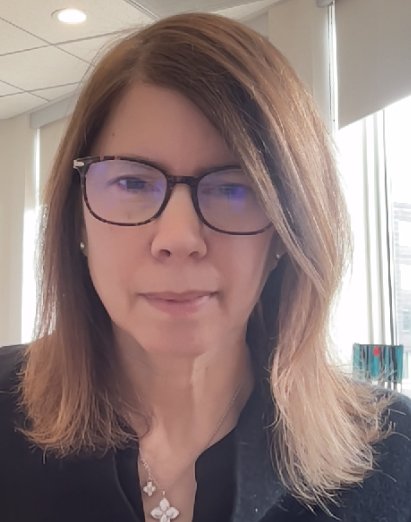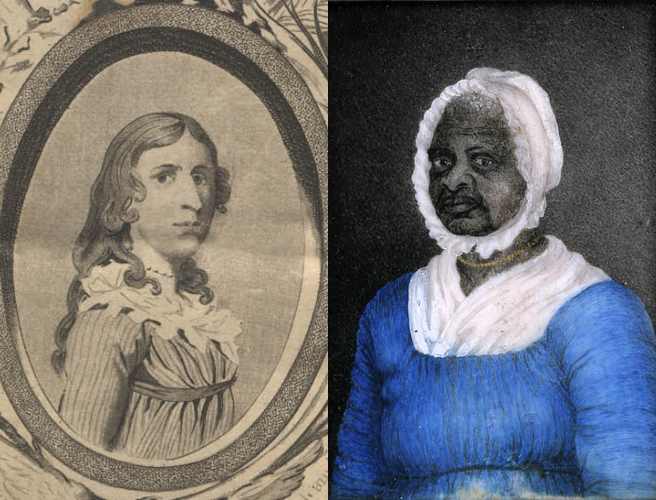Lori Rogers-Stokes is a public historian and independent scholar. She lives in Arlington, Massachusetts, and has been a member since 2012.

Website: https://www.loristokes.com/
Alma maters: BA, Creighton University, 1987; MA, Purdue University, 1989; PhD, Stony Brook University, 1995
Fields of interest: Congregationalism, Woodland New England, Puritans, Indigenous agency, women’s agency
Describe your career path. What led you to where you are today?
Like so many of us, I graduated into a tough job market and had to leave an academic path behind. I scrambled for a few years as I started a family and moved to a new city; I worked for three years as an event planner. Then I found work in social studies publishing just as it transitioned online, which led to work as a digital learning designer, which is my current career. All that time, I kept reading scholarly books and articles and developed my career as a public historian and published scholar.
How have your historical interests evolved across your career?
When I defended my comparative literature dissertation, one faculty member asked me why I wasn’t in the history department! After grad school, I devoted my reading to history. By chance in that reading, I came across James Cooper’s epic book, Tenacious of their Liberties: The Congregationalists in Colonial Massachusetts, and found I was fascinated by the Puritans. Then in 2013 I joined New England’s Hidden Histories (NEHH), a digital history project hosted by the Congregational Library & Archives, transcribing church records from the 17th through the 19th centuries. I got thoroughly hooked on all the completely new, revelatory information those records contain about the people of Woodland New England in the colonizing period and beyond.
What projects are you currently working on?
I have a book coming out on September 30, 2025, on Indigenous and English contributions to the development of Congregationalism from the aftermath of King Philip’s War through the First Great Awakening, particularly the Halfway Covenant, which owes its survival in large part to Indigenous support. I’m also working on a database detailing this process in one town, Hassanamesit/Grafton, Massachusetts Bay Colony, across the turn of the 18th century.
What is your favorite historical site to visit?
Church records! Not a physical site, but whenever I go to NEHH online, I find a new archive of tens of thousands of pages of history no one has read for 200–300 years. I think they’re the most important new primary source available to scholars of colonization, early America, women’s history, and religion. I stand by this hype 100 percent.
What’s the most fascinating thing you’ve ever found at the archives or while doing research?
In 2018, I went to New England Historic Genealogical Society just to get a photo of a manuscript page of a notebook kept by Pequosset/Cambridge minister Thomas Shepard that I was writing an article about. I thought I’d be there for 10 minutes tops. The secondary canon had firmly identified this notebook as representing the live, oral relations Puritans made of their successful spiritual journeys, written down rapidly in the moment by their minister. I had only ever read the published transcription. But when I actually got the primary source in my hands, I realized they did not resemble the transcriptions at all. They were not records of finished work but Shepard’s personal notes on the private sessions he had with people who were in the middle of their journeys. Most of these people were women, and their voices were confident, powerful, unafraid, and independent. This was a bombshell finding that changed my understanding of the records and of “Puritan women,” and was the subject of my first book, Heroic Souls, published in 2020.
Who in your life served as a teacher or mentor and influenced your understanding of history?
I met Jeff Cooper, whose book had such an influence on me, years later at an NEHH event. He generously invited me into that work, and he has been a tireless mentor to me ever since, reading draft chapters, asking questions, and giving advice. Our emails back and forth since 2013 are now part of my archive. When I’m trying to find an idea I had, or a record that was important, the “Jeff” folder is the first place I go.
What do you value most about the history discipline and community?
The commitment to telling the truth about the past. That commitment is under heavy fire right now, yet I see people stepping up more and more fearlessly. Historians aren’t attention-seeking. We like to do our work in quiet community with each other. But as push comes to shove, we’re making our voices public, and it’s very hard work, but no one is stinting.
This work is licensed under a Creative Commons Attribution-NonCommercial-NoDerivatives 4.0 International License. Attribution must provide author name, article title, Perspectives on History, date of publication, and a link to this page. This license applies only to the article, not to text or images used here by permission.


